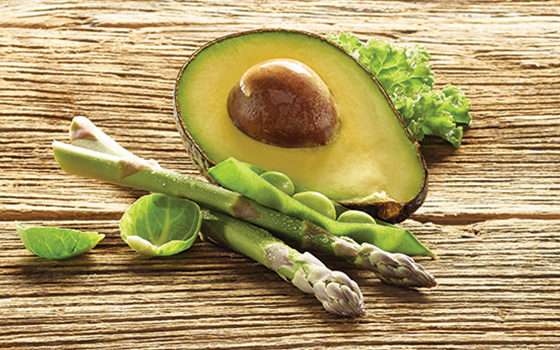Did you know that omega-3 fatty acids improve heart health? These precious polyunsaturated fats are considered “essential” because they cannot be produced by the body. That’s why we have to get them from the foods we eat, such as salmon.
From land and sea
Although a fair amount of omega-3 fatty acids can be derived from plants sources, those derived from the sea seem to be the most effective on several levels.
| ORIGIN |
FOOD SOURCES |
| MARINE |
Fatty fish: salmon, herring, sardine, trout, mackerel, etc. |
| PLANT |
Flaxseed, walnut, canola oil, soy, etc. |
Heart partners
Omega-3 fatty acids provide many health benefits. They help keep the heart healthy and protect arteries by reducing blood cholesterol levels. They also seem to have a positive effect on mood and are essential for brain development.
Useful advice
Canada’s Food Guide recommends eating at least two servings of fish per week.
- Choose fatty fish whenever possible.
Flaxseed needs to be ground for the body to be able to absorb its omega-3 fatty acids.
- Sprinkle ground flaxseed on yogurt, cereal, fruit compotes and homemade desserts.
To meet your body’s daily requirements with plant-based omega 3 fatty acids, be sure to regularly include the following in your meals:
- 2 mL (½ tsp.) flax seed oil
- 15 mL (1 tbsp.) avocado oil
- 60 mL (¼ cup) walnuts
Applying the numbers to your plate
Omega-3s from plant sources
Suggested daily intakes of alpha-linolenic acid or ALA (plant-based omega-3s) are as follows:
| Age |
ALA intake |
| 1 to 3 years |
0.7 g |
| 4 to 8 years |
0.9 g |
| 9 to 13 years |
Girls: 1.0 g
Boys: 1.2 g |
| 14 years and up |
Women: 1.1 g
Men: 1.6 g |
Omega-3 from marine sources
As of yet, no recommended dietary intake has been established for omega-3 fatty acids derived from animal sources (eicosapentaenoic fatty acid, or EPA, and docosahexaenoic fatty acid, or DHA). However,
Canada’s Food Guide recommends eating fish at least twice a week, especially herring, mackerel, char, sardines, salmon or trout.
Fill up on omega-3s!
Here are some ideas for how to incorporate these fatty acids into your diet, including
good sources and their omega-3 content, as well as several delicious recipes!
Fatty fish
Omega-3 content: 1 to 2 g per 90 g (3 oz) of fish, depending on the species.
The best sources of omega-3s are mackerel, salmon, herring, sardines, trout and tuna. Here are some delicious fish recipes you can try:
Flaxseed oil
Omega-3 content: 2.5 g per 5 mL (1 tsp.)
- This oil is very sensitive to heat and should never be used for cooking.
- It can be used in salad dressings and hummus or added to yogurt, smoothies and fruit purées.
Storage: Flaxseed oil can very easily go rancid. It is therefore essential to keep it refrigerated and use it up quickly once the bottle has been opened. Buy small quantities at a time. It should always be stored in opaque containers.
Flaxseed
Omega-3 content: 2.2 g per 15 mL (1 tbsp.)
- Don’t forget to grind your flaxseeds, as in the recipe for Carrot & Raisin Bran Muffins!
- Ground flaxseed can also be added to yogurt or cereal.
Storage: Whole seeds keep well at room temperature, but ground flaxseed is best stored in the fridge or freezer and consumed within a month.
Walnuts
Omega-3 content: 1.2 g per 14 g or 7 nut halves
- How about walnuts in this surprising recipe for a Chicken and cantaloupe sandwich.
- Toasted walnuts make a delicious topping for cereal, salads and desserts.
Other sources of omega-3s:
| FOOD NAME |
MEASURE |
OMEGA-3 CONTENT |
| Canola oil |
10 mL (2 tsp.) |
0.9 g |
| Roasted soy nuts |
50 mL (¼ cup) |
0.4 g |
| Soft margarine made with canola oil |
10 mL (2 tsp.) |
0.4 g |
| Flaxseed bread |
1 slice |
0.3 to 0.7 g |
| Omega-3 eggs |
1 egg |
0.3 g |
| Regular soy beverage or milk enriched with omega-3s |
250 mL (1 cup) |
0.3 g |
More and more products are being enriched with omega-3 fatty acids. Products containing 0.3 g or more omega-3s per serving (check the nutrition facts table) can claim to be a “source of omega-3 fatty acids”. However, it’s important to make sure that the product is also healthy. Just because it contains omega-3 fatty acids does not automatically mean that it is good for you!
Supplement or dietary sources?
It’s always better to get fatty acids from food instead of supplements because dietary sources provide much more than omega-3s. Fish, for example, is a very good source of protein, vitamins and minerals and is generally low in saturated fat.
